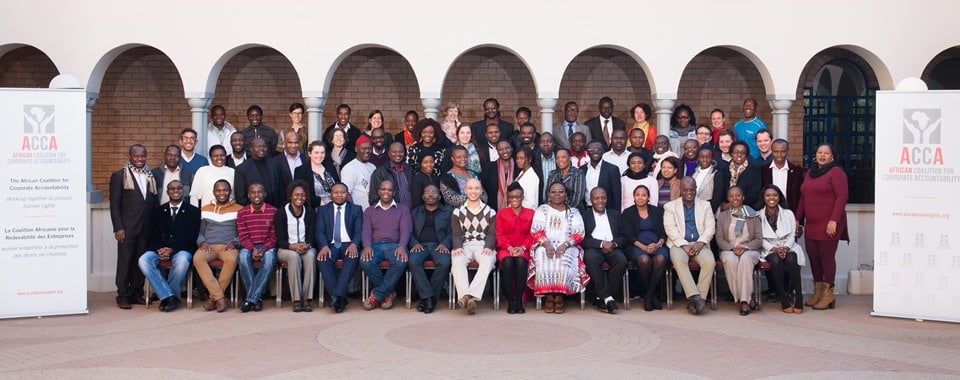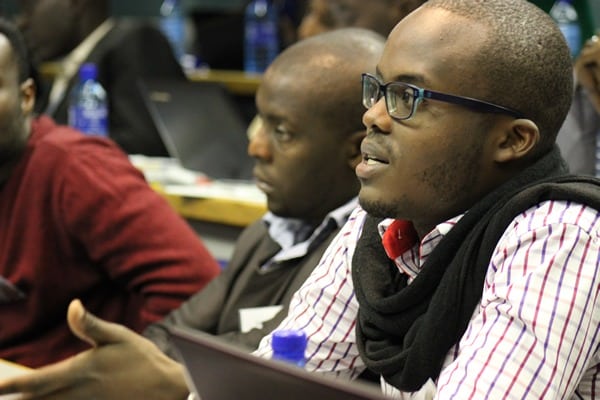
Participants engage in the Business and Human Rights Short Course – Photo credit: Centre for Human Rights
On the African continent, “development” is big business. The banks that finance roads, energy and agriculture projects have a major impact on both governments and corporate actors. As such, these development financiers can play a determinative role in deciding whether development activities work to support the realization of human rights or end up facilitating corporate abuses. Development banks can play a positive role in supporting business and human rights – requiring their clients to address human rights risks, or helping to strengthen national human rights protections, such as rules around resettlement or access to information. They can also play a negative role – financing polluting industries or promoting privatization of public services.
To explore the impact of development finance on business and human rights in Africa, the Coalition for Human Rights in Development teamed up with the African Coalition for Corporate Accountability and the Centre for Human Rights at the University of Pretoria, South Africa, for several energy-filled days of capacity building and strategizing.
During the ACCA General Assembly, which brought together approximately 100 ACCA member organizations and allies from across the continent, the Coalition organized a panel discussion titled “Accountability in Development Finance.” In the session, Nomonde Nyembe of the Centre for Applied Legal Studies in South Africa explored with ACCA members the connections between development financiers and corporate activity, and illustrated the various ways that financing may come into play in a corporate transaction, especially as development actors increase their reliance on the private sector.
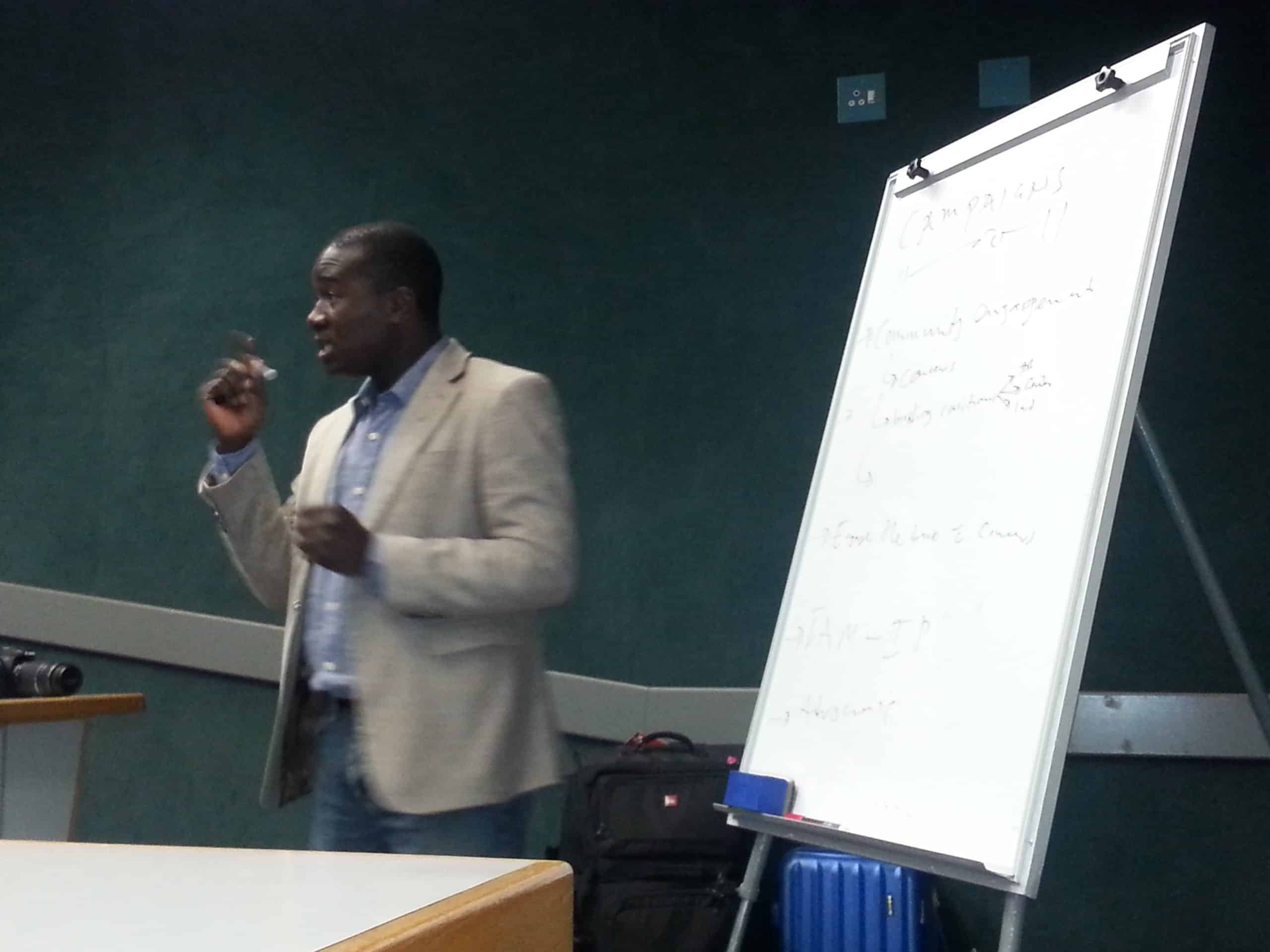
Reinford Mwangonde highlights campaign strategies
Reinford Mwangonde from Citizens for Justice in Malawi and Delphine Djiraïbé with Public Interest Law Center in Chad shared two case studies where development banks were used to hold corporations and governments accountable for their human rights impacts. Djiraïbé shared how PILC used the World Bank to pressure Exxon Mobile and the government of Chad over human rights and environmental abuses stemming from construction of the Chad-Cameroon pipeline. Reinford Mwangonde shared the experience of Citizens for Justice in using development finance connections to stave off a plan by Malawi’s water company to install paid water meters and threaten public access to water.
Paul Guy Hyomeni with Réseau Camerounais des Organisations des Droits de l’homme (RECODH) in Cameroon and Coalition Coordinator Gretchen Gordon highlighted future opportunities for possible ACCA engagement, including the bi-annual meetings of the African Governors of the World Bank and IMF, policy development at the BRICS New Development Bank which will soon open a regional office in Johannesburg, a regional consultation by the African Development Bank, as well as monitoring and advocacy around the hundreds of development projects impacting communities in Africa.
The same week, the Coalition facilitated a half-day “Training on Development Finance and Corporate Accountability” as part of a Short Course on Business and Human Rights hosted by the Centre for Human Rights at the University of Pretoria for approximately 50 LLM students, ACCA members, and staff from various African national human rights institutions.
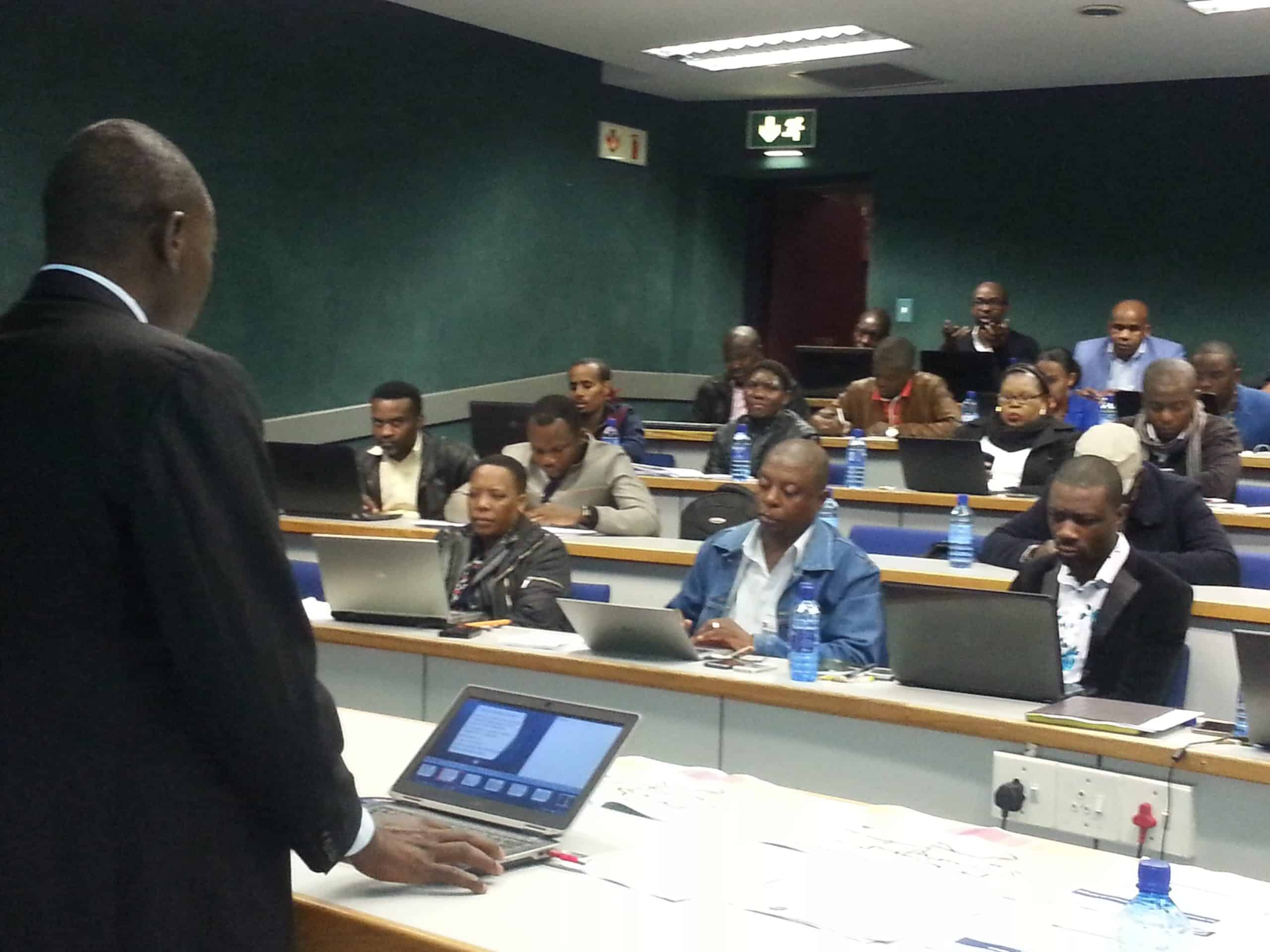
Paul Guy Hyomeni discusses the Lom Pangar Dam
Hyomeni presented a case study of the Lom Pangar dam project in Cameroon to demonstrate the range of human rights impacts implicated in development activities. This project, financed by the African Development Bank, World Bank, and European Investment Bank, affects 17 different communities and involves the resettlement of over 500 households. These families, who engage primarily in farming and artisanal mining, have been pushed from their lands and sources of livelihood without meaningful consultation or fair compensation. RECODH is hoping to be able to pressure the development banks to secure protections for the communities before construction begins on the next phases of the project.
Mwangonde and Gordon used the example of the Lilongwe water project in Malawi, financed by the African Development Bank, World Bank and European Investment Bank, to illustrate the different steps that can be taken to impact development activities. In this water project, Citizens for Justice engaged with local communities, collected data on community concerns and environmental impacts, engaged in advocacy with World Bank representatives and allied government representatives, and explored options for judicial and non-judicial remedies.
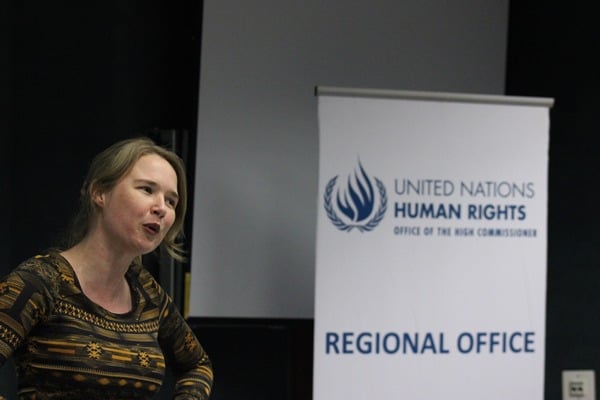
Wilmien Wicomb questions the IFC’s arguments – Photo credit: Centre for Human Rights
Wilmien Wicomb of the Legal Resources Centre in South Africa and Nyembe used the case study of the Trident project – the largest copper mine in Zambia – to illustrate challenges and opportunities for securing accountability in development activities. While the environmental and social performance standards of the International Finance Corporation, which was an equity investor of the mine, should have applied, Wicomb explained that from risk categorization to impact assessment and resettlement compensation, IFC rules were ignored. The mining company pressured traditional authorities to cede an enormous tract of community land without community consultation. The IFC has since divested in the company, so remedy options are challenging.
Throughout the week of events, the issue of development finance was a reoccurring theme. Members of the Coalition and ACCA used the opportunity to issue a statement to the World Bank signed by thirty-four African civil society groups calling on the institution to strengthen its safeguards to ensure protection of human rights. ACCA is also exploring ways to incorporate engagement on development finance within its work.
As development financiers and corporations increasingly look to Africa for investment opportunities, African civil society is working to identify opportunities and strategies to ensure that development supports the realization of human rights for all, not just profits for a few.
For more information, check out the Coalition’s primer on Development and Investment in Africa (and in French).
